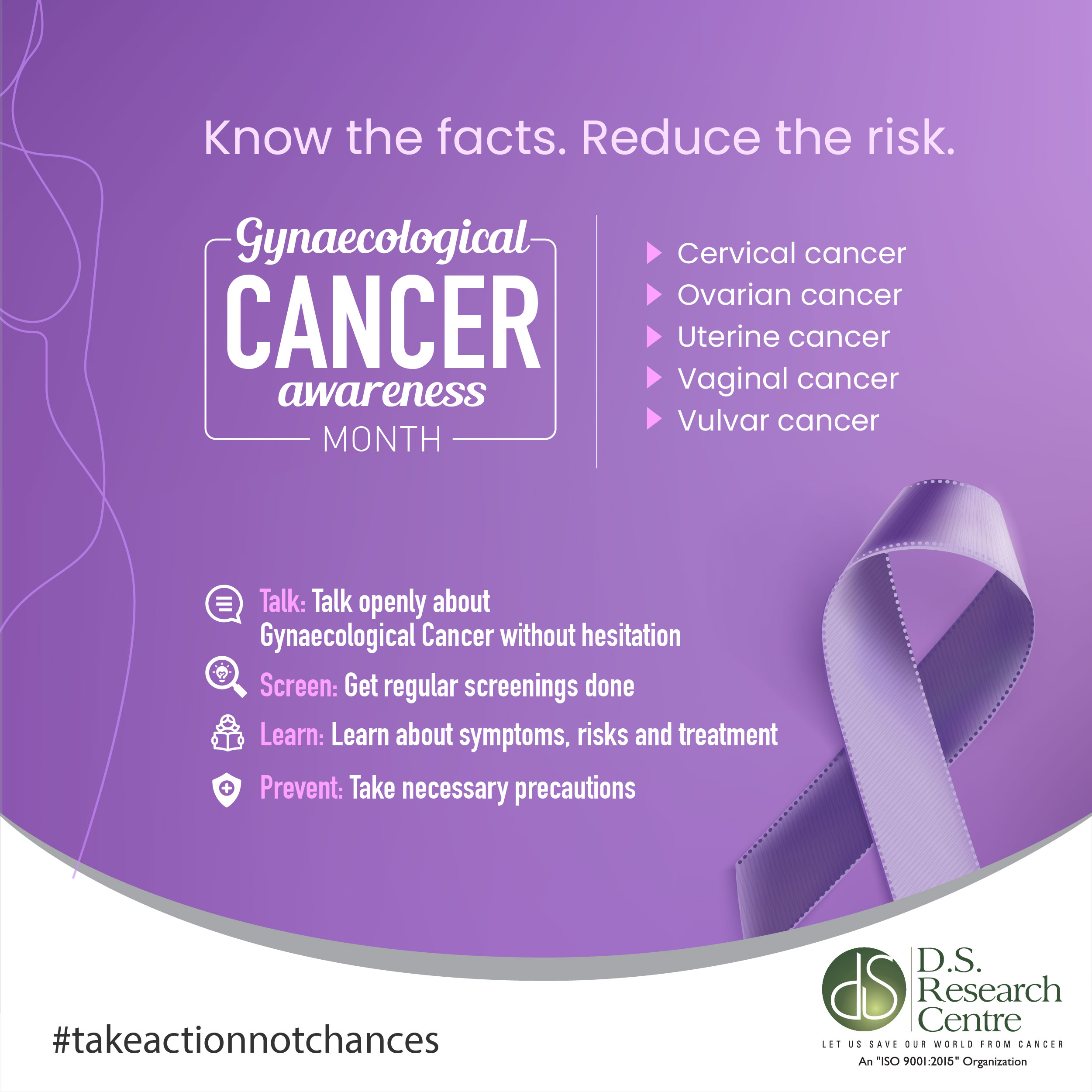Every six minutes, a woman is diagnosed with gynecological cancer.
When cancer starts in a woman's reproductive organs, it is called gynecological cancer. Ovarian cancer is the second most common gynecological cancer in India. It is undoubtedly the most aggressive and lethal gynecological cancer encountered by the oncologists and gynecologists in clinical practice, being associated with a high disease related mortality rate. This is partly due to the fact that most of the patients with ovarian cancer are diagnosed in advanced stages consequent upon its asymptomatic nature in early stages of the disease, and partly because many patients do not get optimum treatment of their disease, leading to dismal outcomes.
Let us learn symptoms, risk factors and prevention tips.
The following types of gynecological cancers are quite common and affect a large number of women every year:
1. Uterine cancer:
Uterine cancer is cancer that begins in the uterus and is one of the most common types of gynecological cancers. Though it can happen to anyone, some factors which increase the risk of uterine cancer are obesity, diabetes, hypertension, use of estrogen without progesterone, etc.
The common endometrial / uterine cancer symptoms are:
Vaginal bleeding or spotting after menopause.
Pain in the lower abdomen.
Bleeding between periods.
Pain during sexual intercourse.
2. Cervical cancer:
Another very common type of gynecologic cancer is cervical cancer and is one of the leading causes of cancer-related deaths in women worldwide. A large number of women in India are diagnosed with this cancer every year, and unfortunately, due to lack of awareness and poor cancer screening facilities, a majority of women are diagnosed when cancer has reached advanced stages. Also, a large number of cervical cancers are caused due to HPV (Human Papillomavirus) infection.
Some common cervical cancer symptoms include:
Regular cancer screenings and PAP test for HPV detection are important for early detection. If diagnosed early, cervical cancer can be treated.
Vaccinating young girls for preventing HPV infection before they are sexually active is a very effective way to prevent cervical cancers as well as many other forms of gynecological cancers.
3. Ovarian cancer:
Ovarian cancer is another common gynecological cancer.
Some common ovarian cancer symptoms are:
Extreme and sudden onset of bloating.
Difficulty in eating or loss of appetite.
Unexplained weight loss.
Increased frequency or urgency of urination.
Pain and discomfort in the pelvic or abdominal region.
Spotting or bleeding between menstrual cycles.
One important point to note about ovarian cancers is that they are quite aggressive and have a tendency to recur in an advanced stage.
Rare gynecological cancers:
Some rarer forms of gynecological cancers are:
1. Vulvar cancer:
Vulvar cancer is a rare form of gynecological cancer and it affects the external female genitalia. It usually occurs in elderly women and is easily identifiable by the following symptoms:
Red, pink, or white bumps having wart-like surface.
Pain, itching or burning sensation while urinating.
Bleeding not associated with menstruation.
Presence of white and rough patch in the region.
A persistent open sore or ulcer.
Change in color of external genitals
2. Vaginal cancer:
Vaginal cancer is one of the rarest forms of gynecological cancer. It usually affects women over 50 years of age and in most cases, HPV (Human Papillomavirus) infection is responsible for cancer. The symptoms are:
Presence of an obvious mass.
Abnormal vaginal bleeding or discharge.
Pain during and after intercourse.
Difficulty in urinating.
Pelvic pain.
3. Gestational trophoblastic tumor:
Gestational trophoblastic disease (GTD) is a term used for a group of pregnancy-related tumors. These type of tumors are also quite rare. These tumors usually start in the cells that would become placenta during pregnancy. Gestational trophoblastic disease (GTD) is a group of rare diseases in which abnormal trophoblast cells grow inside the uterus after conception.
 Ayurveda believes that prevention is better than cure. Early detection always has greater chances of successful treatment. Visiting a doctor for check up in case of any problem or going for a routine follow-up for general check up should always be encouraged in women.
Ayurveda believes that prevention is better than cure. Early detection always has greater chances of successful treatment. Visiting a doctor for check up in case of any problem or going for a routine follow-up for general check up should always be encouraged in women.
Eating healthy food, exercise or yoga, indulging in any form of de-stressing activity, hobbies and not ignoring their health issues are the facts women should really consider. Stress is an important factor in everyone’s life these days which could also be a major risk factor for Cancer. Stay Healthy!








Posted on April 15, 2016
Posted on April 15, 2016